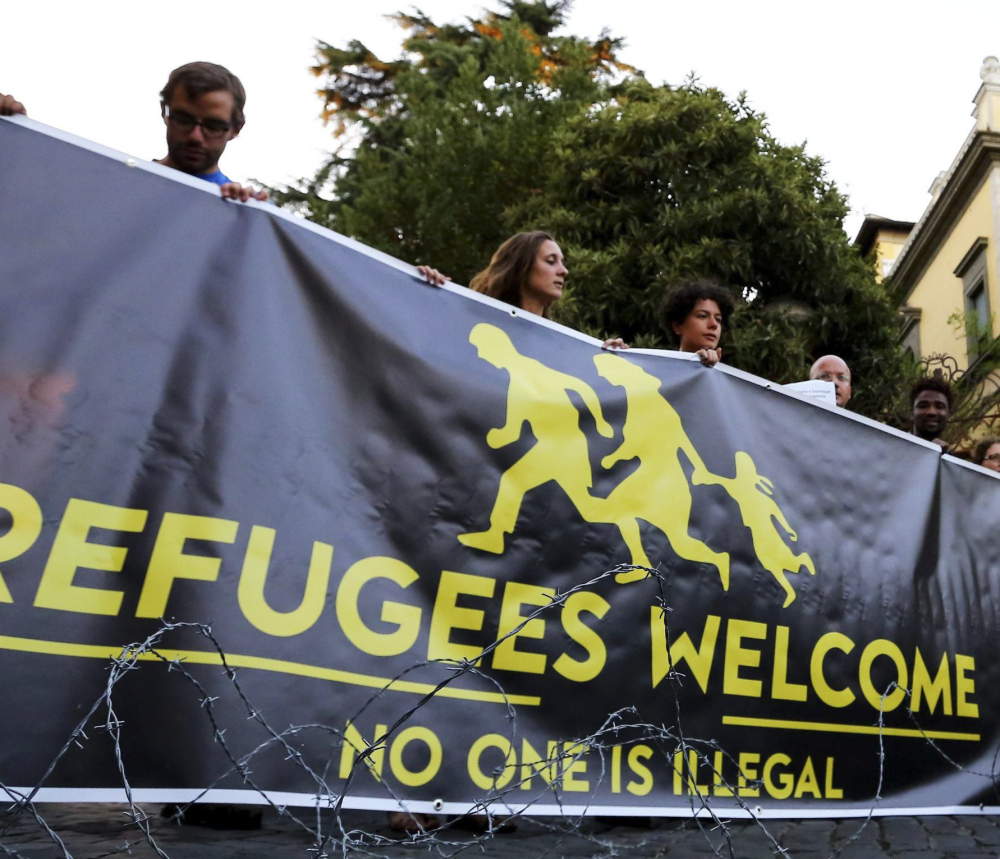BRUSSELS — With Europe’s refugee crisis escalating, European leaders on Tuesday approved a plan to spread asylum-seekers across the continent over the objection of Central European nations.
The plan to distribute 120,000 people across Europe is a first step toward easing the plight of the men, women and children who have been shunted from one European nation to another in recent weeks, a grim procession of human need in one of the richest regions in the world.
But the decision to override the dissenters means that the European Union will be sending thousands of people to nations that do not want them, raising questions about both the future of the 28-nation bloc and the well-being of the asylum-seekers consigned to those countries. Hungary, Romania, the Czech Republic and Slovakia voted against the measure, a rare note of discord for a body that usually operates by consensus on key matters of national sovereignty. Finland abstained.
For all the controversy, the plan would find homes for just 20 days’ worth of new arrivals to Europe, a measure of the scale of the crisis and the baby steps the continent has taken to address it. EU leaders will meet in Brussels on Wednesday to discuss broader measures to stem the flow, including bolstering EU border controls and stepping up support for the burdened refugee camps along Syria’s borders.
But after the bitter vote on Tuesday, it was unclear how much common ground remained among leaders.
“Some people will say today that Europe is divided because the decision was not taken by consensus,” said Jean Asselborn, the foreign minister of Luxembourg. “If we had not done this, Europe would have been even more divided and its credibility would have been even more undermined.”
Wealthy nations such as Germany have faced tens of thousands of people arriving every week. Leaders there have welcomed Syrians fleeing their war-ravaged country, but they have also said they could not shoulder the entire burden on their own.
“We are doing this out of solidarity and responsibility, but also out of our own interest,” German Interior Minister Thomas de Maizière said after the meeting. He said the agreement would “prevent more people who are currently in Greece from coming to Germany.” Germany expects up to 1 million asylum seekers this year alone.
Proponents of the plan acknowledged Tuesday that it was just a first step to address the much bigger crisis. According to the U.N. refugee agency, more than 477,000 people have arrived in Europe so far this year via often-dangerous Mediterranean crossings, and 6,000 people now land on Europe’s shores every day.
Send questions/comments to the editors.



Success. Please wait for the page to reload. If the page does not reload within 5 seconds, please refresh the page.
Enter your email and password to access comments.
Hi, to comment on stories you must . This profile is in addition to your subscription and website login.
Already have a commenting profile? .
Invalid username/password.
Please check your email to confirm and complete your registration.
Only subscribers are eligible to post comments. Please subscribe or login first for digital access. Here’s why.
Use the form below to reset your password. When you've submitted your account email, we will send an email with a reset code.